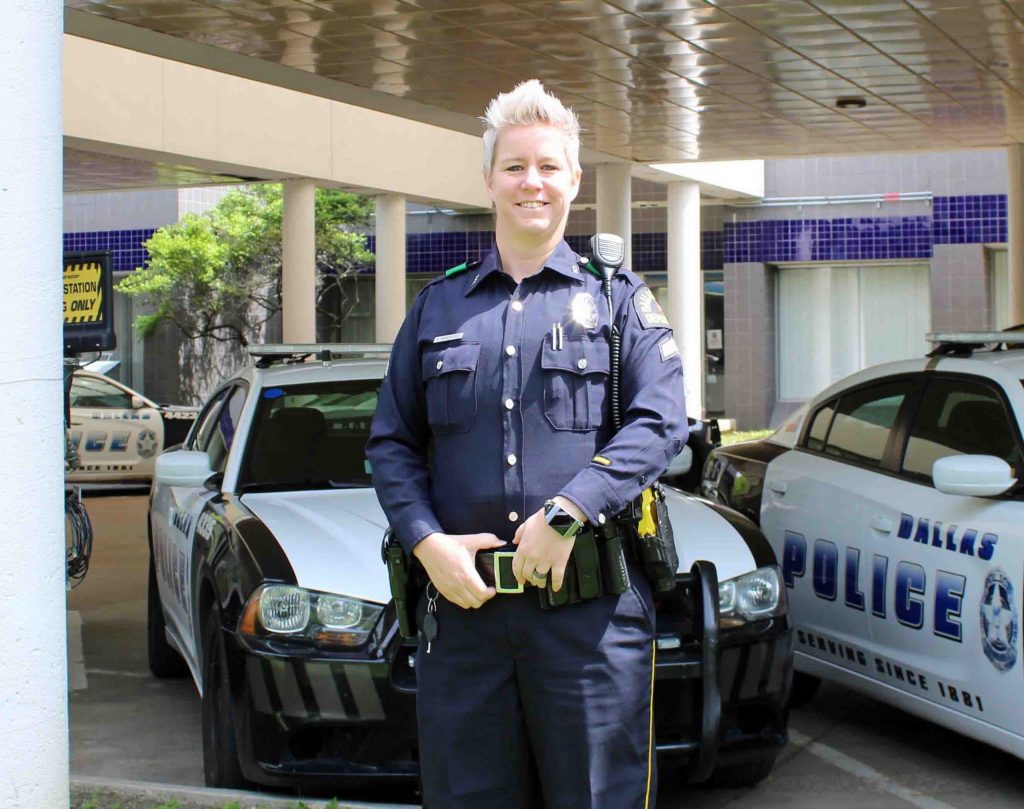Eight officers in the Dallas Police Department have tested positive for coronavirus so far, including Senior Corporal Allison Brockford. She returned to work at the Northeast Division at Audelia and Northwest Highway Monday after a full recovery.
Brockford is well-known in Lake Highlands for mentoring teens at the North Lake Highlands Youth Boxing Gym since it opened in 2017. The facility at Forest and Audelia is a public-private endeavor that offers recreational activities for kids who might otherwise find an empty apartment and trouble on the streets after school.
Brockford, the picture of physical fitness, said her bout with COVID-19 began on St. Patrick’s Day.
“It started out as a cough,” she told me. “I just thought it was asthma. I got home, and after dinner it felt like my skin started to crawl. I was having body aches, and I knew that wasn’t normal. I had a headache that really hit me hard. The next day I got tested through my doctor, but that night I felt much better. I was certain I didn’t have it.”
When Brockford woke up, she found a message waiting. She was positive for COVID-19.
“I self-quarantined in the master bedroom, and my wife and 10-year-old daughter took the rest of the house. She wiped down all the switches and doorknobs to keep them safe. The county put them in quarantine 14 days longer than me, so they got the short end of the stick.”
Brockford’s family hasn’t shown any symptoms of the virus.
Back at the DPD Northeast Division, officers attempted to identify and isolate Brockford’s co-workers.
“They called my whole unit – especially my partner who I was with the whole day, working on the same computer,” she said.
Retracing her steps, Brockford racked her brain to determine when and where she might have encountered the infection.
“I don’t think you can,” she finally determined. “It’s a 1 to 14 day incubation period. We come in contact with so many people, plus they say 20% of the people who have it don’t show any symptoms. Just think of how many people are walking around with it, not knowing they need to be tested.”
Brockford’s takeaway, she said, was the way her family was buoyed by well-wishes from the community during their ordeal.
“I was inundated with support,” said Brockford. “People were texting me and checking up on me – buddies from the [police] academy, neighbors, parents from my daughter’s school. People were dropping food off at our house and bringing supplies – we never felt alone. It felt really good. I’m not usually one to ask for help, but in this case we had to. Nobody was allowed to leave. We had to say yes.”
Brockford admits she was anxious, at first, about how she would be received.
“I was a little bit worried that people would not want to be around me, would think they’d get it from being around me. Instead, people were happy to help.”
Today, she knows she lucky.
“I’m very grateful. It’s a numbers game, and most people recover, but people are not just numbers. People are dying and people are being intubated.”
Brockford interacts frequently with members of the community, and she knows there’s a great deal of fear about this new disease. Family members of first responders and health care workers, in particular, are worried about sending their loved ones out onto the front lines.
“Speaking out is not in my comfort zone, but it’s good for people to know that I did recover and I’m feeling good. I worked out Saturday with no respiratory issues at all. I’m going to be alright.”






